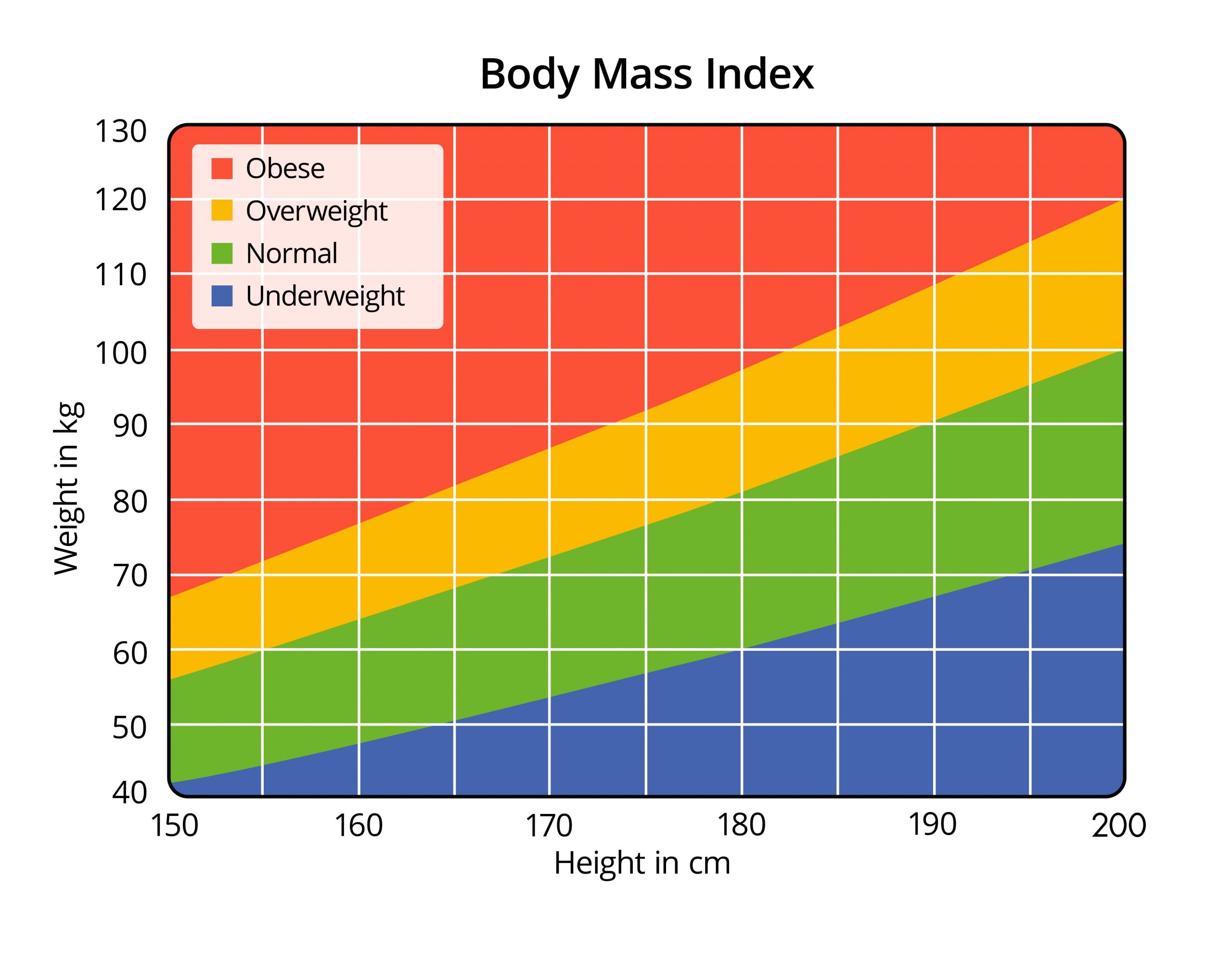Your BMI is a measurement that is a ratio of your weight and height. It’s a good way to gauge whether your weight is in healthy proportion to your height. In fact, knowing your BMI can help you – and your GP – determine any health risks you may face if it’s outside of the healthy range.
Being overweight can lead to a range of chronic conditions including:
- Type 2 Diabetes
- High blood pressure
- Heart or blood vessel problems
- Cardiovascular disease
- Musculoskeletal problems
Being underweight can result in other health issues like:
- Risk of malnutrition
- Osteoporosis
- Anaemia
How to calculate your BMI
Simply divide your weight in kilograms by your height in metres squared.
For example, if you weigh 70kg and you are 185cm tall your BMI calculation will look like this:
![]()

or click here to learn more and calculate your BMI.
The BMI scale
18.5 to 24.9 = healthy
25 to 29.9 = overweight
30 and above = obese
18.4 and under = underweight
It’s a good measure of your health, but not perfect
While it may be a great guide to establishing the amount of body fat you carry, your BMI won’t take into consideration your age, sex, ethnicity, or even muscle mass. It’s also not appropriate in determining a healthy weight in the elderly, children, pregnant women or even athletes.
Book in for a free health assessment
To find out your Body Mass Index, visit our local medical centre. Click here to find a medical centre near you.
Read our privacy policy.






 Book online
Book online